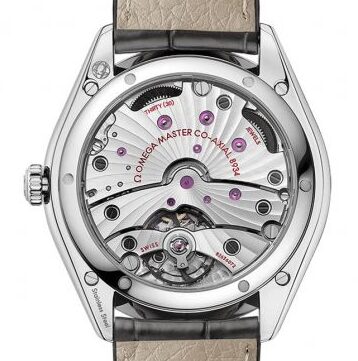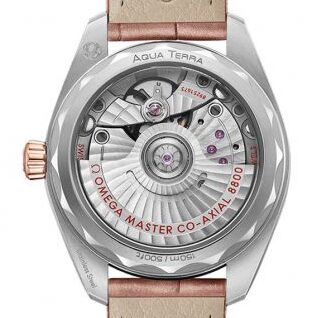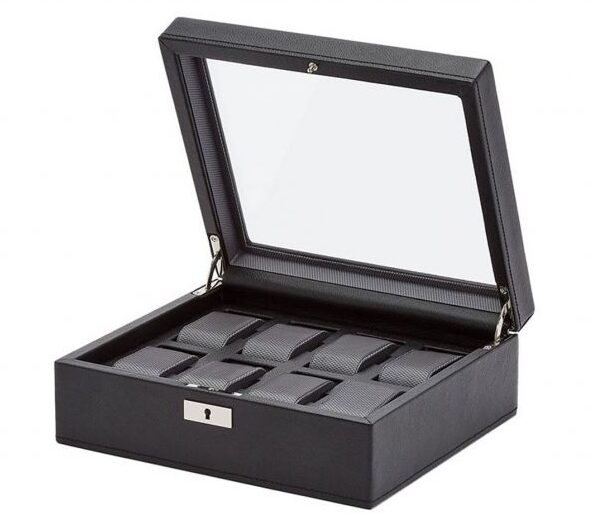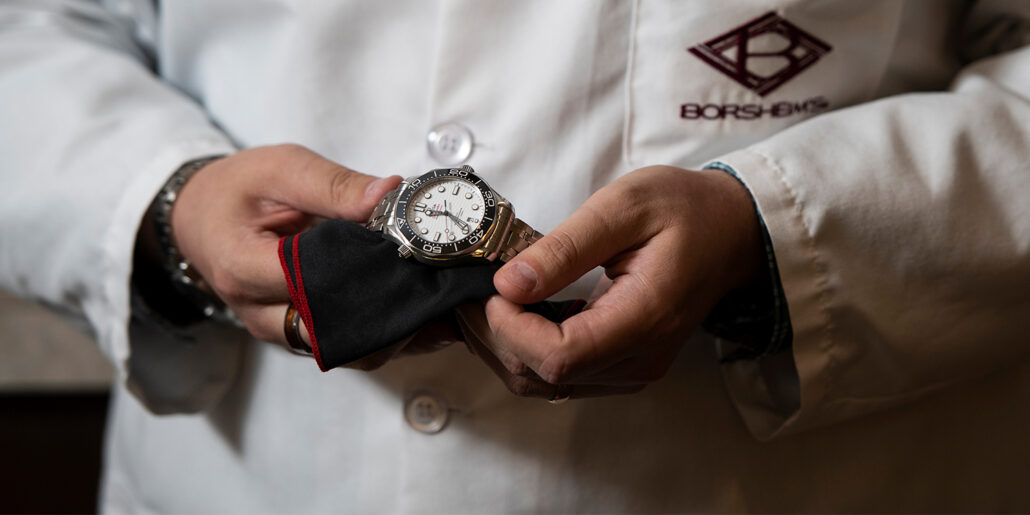When properly cared for, a quality watch can last a lifetime—or many lifetimes in the case of vintage watches or those passed down through generations. We’ve compiled a list of simple tips and guidelines to help ensure that your timepiece stays in its best condition for as long as possible. For instructions and specifications on your particular timepiece, please reference the instruction manual that accompanied your watch at the time of purchase.
Maintaining Your Watch
Taking appropriate steps to maintain your watch will make all the difference in how good it looks, how well it functions and how long it ultimately lasts. By servicing your watch regularly, you can significantly extend its lifespan and ensure that it keeps performing properly year after year. The rule of thumb for how often a watch should be serviced is every 5-7 years for mechanical and automatic watches and every 7-10 years for quartz watches. However, your watch will likely require more frequent professional cleanings, battery changes and pressure tests.
Cleaning
It is recommended to have the exterior of your watch ultrasonically cleaned annually. This will remove any dirt from the watch bracelet and case. In addition to maintaining your watch’s appearance, ultrasonic cleaning will help protect the pins and links in your bracelet against everyday wear and tear.
Battery Changes
The average life of a battery is one to three years. However, the watch’s condition, movement, and age affect how long a battery lasts.
Many modern quartz movements are equipped with an EOL (End-Of-Life) feature which allows the watch to conserve energy once the battery is depleted to a certain point. The timepiece will conserve energy by skipping four seconds at a time instead of every second as usual. This feature will allow the watch to remain on time for around 30 days before the watch stops completely.
Water Resistance
Most modern watches today are rated for varying degrees of water resistance. Therefore, the watch manufacturers and our in-house watchmakers recommend having your watch pressure tested every time the battery is replaced. Ensuring that your gaskets and seals are in proper working order is the best way to protect against moisture and dirt, which can affect the overall functionality of your timepiece.
If your watch encounters moisture, wipe it down as quickly as possible with a soft, dry cloth. At your earliest convenience, we recommend taking your timepiece to be examined by a professional and dried out if necessary.
Winding Your Watch

Manual Watches
Manual wind watches should be wound fully every day at the same time. These watches typically require 30-40 turns of the crown to be fully wound. As you wind the watch, you may begin to feel the tension of the mainspring. You will feel resistance when the watch is fully wound, indicating you can stop winding.

Automatic Watches
Automatic watches have a slipping mainspring which allows the watch to be self-wound through the movement of being worn without the fear of being “overwound.” Remember that the watch may require more activity to keep the power reserve full if you have a less active lifestyle. If your watch is not keeping time properly, you can hand wind most automatic movements to ensure the power reserve is full and the watch keeps time as accurately as possible.
Storing Your Watch
To keep your watch looking and functioning at its best, store it in a clean, temperature-controlled environment. Water is the natural enemy of all timepieces, and prolonged exposure to moisture or dust may impact many aspects of a watch. A watch box is a great option to help protect your watch against dust and dirt.
It is also recommended to keep all boxes, accessories and paperwork that accompanied your watch at the time of purchase in a safe place for quick reference when necessary.

Insuring Your Watch
Did you know that most homeowners’ insurance policies don’t adequately cover personal items such as jewelry and watches? Insurance laws vary from state to state and abroad. For this reason, we recommend contacting your trusted insurance professional to find out what option makes the most sense. Proper insurance coverage typically requires an official appraisal from a reputable jeweler. Borsheims is pleased to offer complimentary appraisals for jewelry and watches purchased from us. A fee may apply if Borsheims cannot find a record of the purchase and original proof of purchase is not provided.

